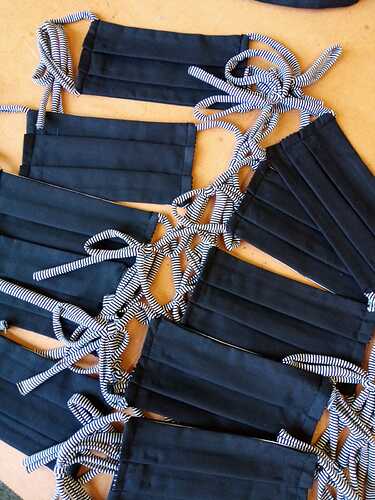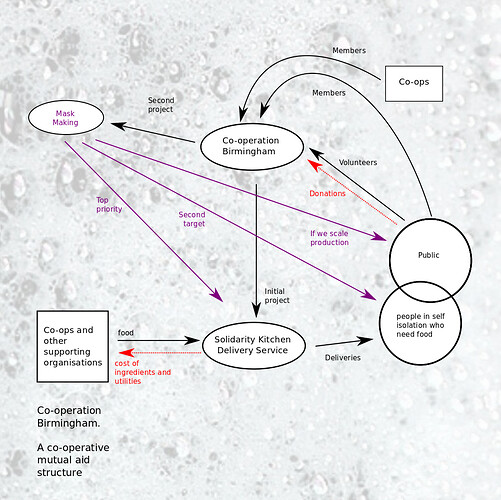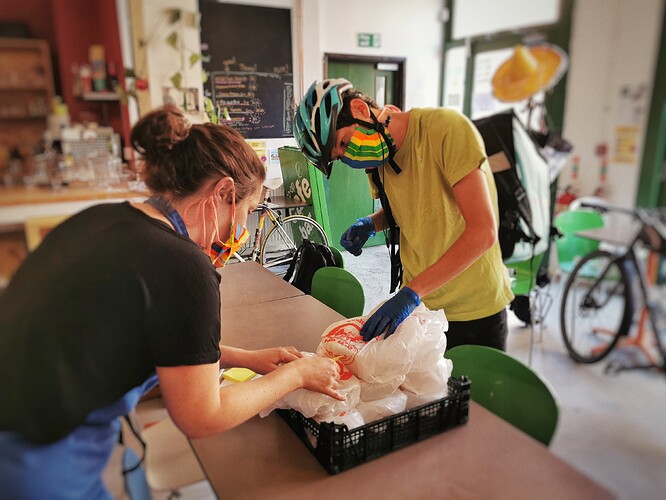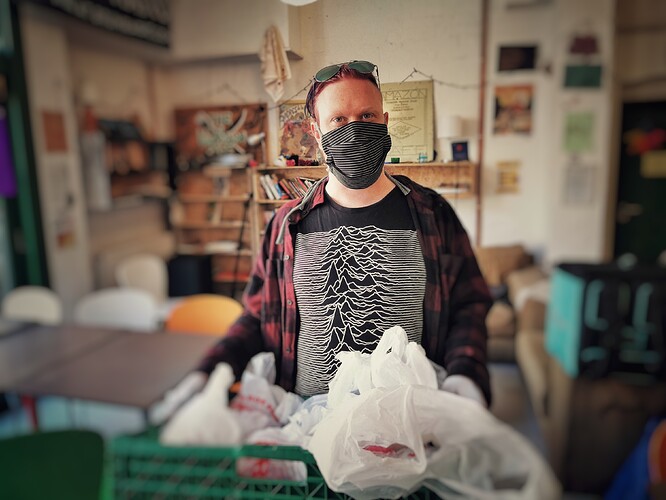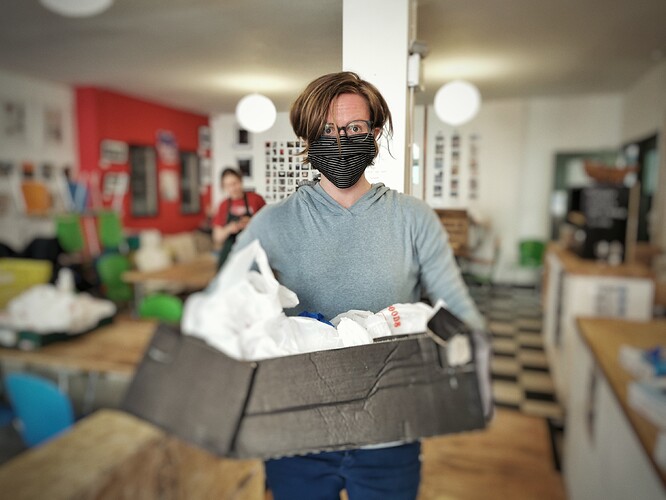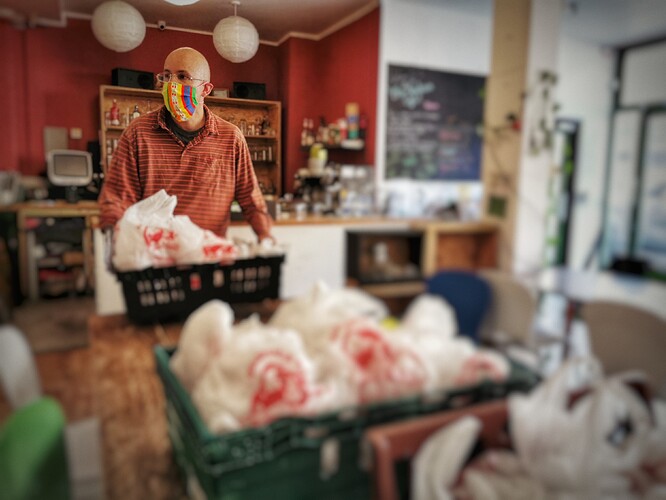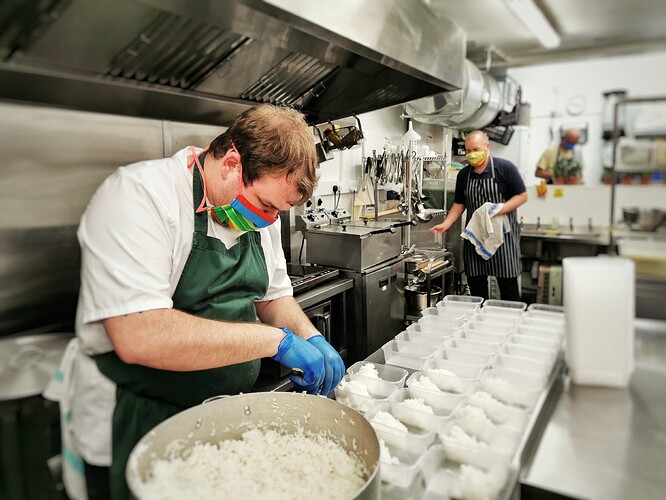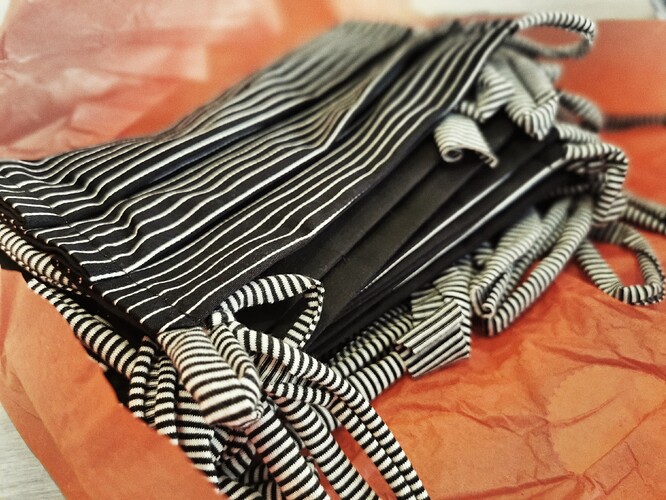We want to make masks 
Masks for our meal deliveries & cooking, masks for key workers who need them, masks for people to wear in their daily lives. We all need masks quickly and in a way which doesn’t impact supply chains for key workers.
That means making them ourselves 
Last week there was an initial Mask making meeting for Co-operation Birmingham. The scope of the plans of the making group is initially to equip the Solidarity Kitchen project and it’s delivery drivers with masks, so far we’ve made over 70 masks and hope to increase that number massively. To begin with we will be using what materials are people have at their homes but as we expand we will be trying to address how we can access materials for larger scale production. Initially we hope to provide masks to make the vital hot meal services we are providing across the city safer, then we hope to provide masks to the people and the families of the people who are receiving food from the solidarity kitchen. Following that we hope to make links with unions and other organisations to provide PPE packs for keyworkers across the city.
If you would like to support the mask making drive or get involved in the production yourself please contact masks@cooperationbirmingham.org.uk or if you have means to contribute financially you can donate here: Co-operation Birmingham - Mutual aid kitchen, organized by Cooperation Birmingham or set up a regular payment towards the activities of Cooperation Birmingham here: Payment details - Cooperation Birmingham
More info on masks from our health and safety guidelines
There is clear evidence to show that, used correctly, even DIY or cloth masks can reduce the likelihood of transmission from the wearer, and also goes some way to stopping the wearer coming into contact with the virus in airborne water particles.
However, the effectiveness is significantly less than medical masks designed for this purpose. As the crisis has progressed, recommendations for DIY mask usage in community settings have been adopted more widely, for instance the U.S Govt has moved to this position as late as the 4th of April.
The campaign Masks Save Lives is a good starting point for recommendations.
Also the Coronavirus Tech Handbook is great for resources of all sorts.
Medical masks are in very short supply in healthcare settings and must not be used in community settings to prevent using valuable resources.
Finding guides for making masks online is straightforward. If you can’t make one or don’t have access to materials at the very least use a scarf to cover your face.
Users of masks should be aware of the protocols for fitting and removing masks safely
